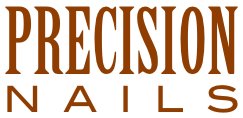Several years ago, after teaching a class at Premiere Orlando, I was approached by an apprehensive student who asked, “How do I convince my husband that I can make money doing nails?” Though unexpected, it was a relevant question. Even before becoming licensed, this student was feeling uncertain about her career choice. Perhaps she was concerned about finding the ideal salon, investing in expensive products, developing her technical skills, building a loyal clientele or other challenges that we face as beauty professionals. Instinctively, I responded, “You need to convince yourself first.” Rather than offer false assurances, I wanted to be honest. While my experience validates the possibility of success, it’s not a common experience and not what students should expect, no matter how confident they are. If believing in oneself were the foundation of success, any manicurist could succeed, regardless of talent, effort and/or luck. That’s simply not the case.
Here’s something else students are not likely to be told, but I tell them anyway. Within the beauty profession, there’s a strong possibility of failure, and the overwhelming desire to be “independent” may be to blame. Visit any beauty school and the majority of students will share their dreams of opening their own salons. I can relate to the excitement of entering a new profession, and appreciate the students’ enthusiasm. Understandably, it’s very appealing to envision ourselves as capable of making our own decisions, controlling our work environment, making clients looks and feel better, doing what we love and supporting ourselves. But how realistic is that, really? Regardless of employment status, how many manicurists earn a living wage doing nails? If not many, don’t blame greedy salon owners. Having taken an opportunity to be independent either as booth renters or salon owners, why do so many manicurists still struggle?
Let’s go back to beauty school, in which students learn how to perform the beauty services required by a licensing examination. Being prepared for a test is different from being prepared for the realities of salon work, much less salon ownership. Instructors can inspire students all they want, but if they happened to be unsuccessful working in a salon environment, how can they prepare their students? (I doubt most instructors, while still students, dreamed of working at a beauty school for $15 an hour.) Not to minimize the sacrifices students make, but the investment of attending beauty school at a fixed cost for a specific number of hours does not compare to the investment of launching a salon, and the continuous demands of its operation. Completing beauty school is a prerequisite for attempting the licensing exam; does any state require a beauty school education to own a salon?
I ask that question facetiously because I’m frequently contacted by individuals who plan to open salons, despite having no professional education or experience in our industry other than receiving services. (I love dining out, but that doesn’t qualify me to own a restaurant.) These potential salon owners believe that their success in their current profession will easily translate to success in the nail profession. They’re just as naive as students. Opening a salon is easy; operating one that’s legal and profitable is much harder to achieve.
Returning to the plight of struggling manicurists, what’s the problem? Spend time around them, whether online or in person, and they’ll offer multiple explanations:
- the economy is bad and all salons are suffering
- I can’t compete with discount salons
- my clients will leave if I raise my prices
- my services take a long time, but it’s because I’m a perfectionist
- my clients expect free repairs and nail art
- the cost of quality products is too expensive
- the other manicurists in the salon don’t clean
- the salon owner doesn’t refer clients to me, and so on.
Why do these manicurists reject the option of being employed by a successful and responsible salon owner? What makes them believe they could do better on their own? While optimism might sustain them initially, and sometimes indefinitely, it can also mislead. How else to explain the number of manicurists who persist in our profession despite not being financially successful? Maybe they don’t need to make money; they might have another job, financial support from a spouse or a trust fund. That’s not me; I’ve always valued my success more than my independence because I need to support myself. Each of us must consider what’s in our best interests, and for some, that might mean leaving the nail profession altogether. If that seems harsh, I’d say that encouraging those incapable of success, for whatever reasons, to stick it out would be far more so. If I’m wrong, they can prove it.
By Jaime Schrabeck, Ph.D.





No comments:
Post a Comment